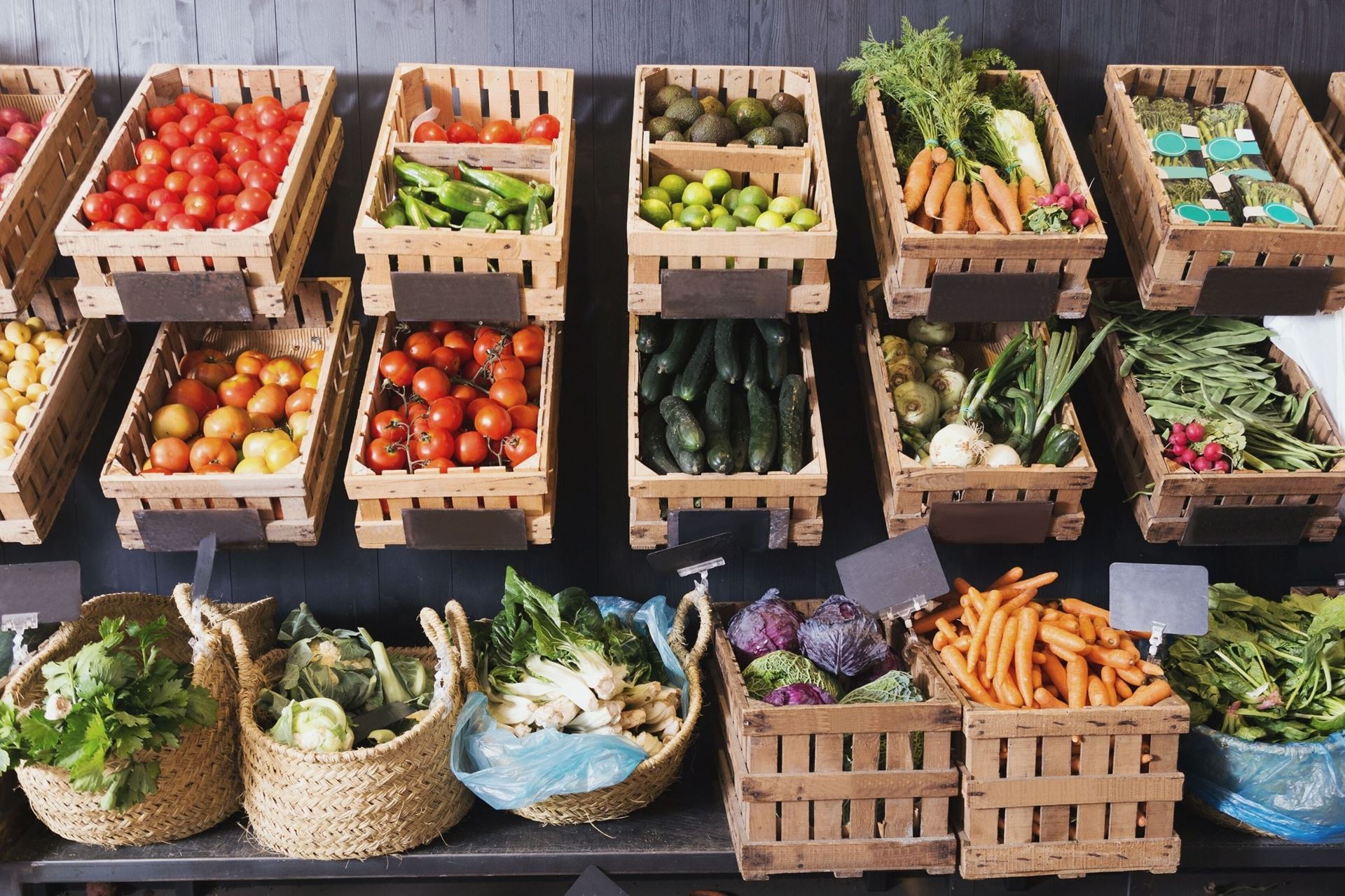
Follow Up: November Florida Food Forum
Building Resilient Communities Through Cooperatives
If you were unable to attend the meeting, watch the full presentation online here.
To keep the conversation going, please add your thoughts and comments to our forum page here.
On November 19th, the Florida Food Forum on "Building Resilient Communities Through Cooperatives" featured guest speakers Erica Hardison, Board President of One Community Co-Op, and Lou Murray, Co-chair of the Manasota Food Action Council for both Sarasota and Manatee Counties. The speakers discussed a number of topics including: the structure and benefits of cooperatives, the importance of farmers' markets, the Electronic Benefit System (EBT) and Fresh Access Bucks (FAB), and how organizations can work collectively to create stronger local food systems, especially in underserved communities.
Erica Hall, Chair of the FLFPC Board of Directors, opened up the forum with a warm welcome and indigenous land acknowledgement, then turned over the floor to the panelists for presentations, which were followed by a lively discussion. Below is a shortened summary of what was covered during the forum.
The first speaker, Erica Hardison, began by explaining what a cooperative is.
According to the International Co-Operative Alliance, a cooperative, or co-op, is defined as “an autonomous association of persons united voluntarily to meet their common economic, social and cultural needs and aspirations through a jointly-owned and democratically controlled enterprise."
”In other words, cooperatives are created by people who have a specific need and who are willing to work together to cooperate and organize a company that will meet that need,” Erica added.
She emphasized that cooperatives are a business with policies, and business policies can enable cooperatives to run more effectively in certain spaces.
Types of Cooperatives
There are many different types of cooperative businesses but are most often seen in areas such as: agriculture, insurance, financial services, grocery, education, healthcare, housing and utilities. Furthermore, co-ops can take on many forms including worker co-ops, consumer co-ops, purchasing co-ops, and even hybrid co-ops.
Erica explained that there are seven main principles that cooperatives run on:
1. Open and voluntary membership
2. Democratic member control
3. Cooperation among cooperatives
4. Autonomy and independence
5. Member economic participation
6. Concern and community
7. Education, training and information
Why do we want to be part of a co-op?
“It’s really because we want to be part of something bigger; something sustainable; something that is a solution. So, when we talk about why you would want to be part of a co-op, there are several reasons. A lot of times, it’s the purpose. Co-ops they help us to realize what we can do economically together versus individually. They help us to really solidify and sustain our cultural values,” Erica noted. “There are co-ops that serve a particular purpose in maintaining for instance, a culture cooking style, a cultural way of doing work. And they also help meet social needs. So, when you think about why, you have to think about the social needs of the organization and the surrounding community.”
When it comes to food security, Erica gave the example of how co-ops can assist food insecure areas when grocery stores don’t want to take on the risk. “As a co-op and as a community, we can absorb that risk, own it together, and benefit the community.”
Other benefits that co-ops provide are: giving access to benefits that communities may not receive, they help businesses become sustainable and build resilience. Since co-ops have a commit to the community. The democratic governance can empower people to engage in other ways and become leaders in their communities. They help to provide equality, equity and inclusion in areas where people are not given a chance.
At the end of her presentation Erica took time to answer questions about laws regarding cooperatives, how cooperatives empower and educate about cooking and growing, online platforms that support cooperatives, as well as how to join One Community Grocery Co-op and where it operates.
The second speaker, Lou Murray, continued the forum with a story about the changes he has seen in the food system and his work while serving on the Federal Reserve Advisory Board.
“We weren’t always underserved communities,” Lou said. “We were self-contained minority communities. Especially Black communities were self-contained communities. We had our own grocery stores, we had what we called the fruit man who would come down and set up a fruit stand and even bring fruit to your house…The point is, we were not always underserved communities. We became underserved when integration came, and it was good on one hand but it was bad on the other. And after that, 90% of what the money that we created in our community started going out. And any community that has 90% of the money that it produces going out will become a ghetto or a blighted area.”
Lou saw this first-hand, especially when he was working in Detroit. As many of the major grocery stores left over the years, it was devastating to the city and still is today. In fact, at one time Lou noted that over $1 billion a year was leaving the local economy in grocery sales.
Electronic Benefit Transfer (EBT) System
For three years, Lou served on the Federal Reserve Advisory Board under the Clinton administration. One of the last assignments he received at the time involved the Electronic Benefit Transfer (EBT) system. He was asked to give a report and advice on improving the new system.
He explained that it was set up with three objectives: to help farms, to bring nutritious foods into underserved communities, and most notably—that it was supposed to create community-based enterprises in underserved communities.
Although the EBT system provides an important service, Lou said that of the $9 billion federal food dollars that comes into Florida every year, 80% of that goes directly to the national grocery stores.
“Right now, 80% of the money that goes through the EBT system goes into national supermarkets and corporate farms. The 20% is still going into the community, but mainly in terms of liquor stores and gas stations. This is a problem because those stores very little fruit or healthy foods can be purchased in those locations.”
He went on to explain that the reason these stores often don’t have fruits and vegetables is because the shelf-life is too short to make money, prompting the sale of products such as tobacco, liquor and snacks.
Another notable issue Lou highlighted was the reliance on emergency food systems. “These emergency food systems have inundated and taken over the food system in underserved communities,” he said. “This has been devastating in terms of us creating community enterprises like food co-ops and EBT farmers markets.”
Sarasota’s Newtown Farmers Market
Lou continued his presentation by explaining how the Newtown Farmers Market in Sarasota was created. A community health initiative taskforce was formed and identified the area as a food desert. One solution was to set up a farmers’ market, which led to the creation of the advocacy group The Newtown Nation, which was tasked with setting up the market.
They were able to obtain a grant from the Martin Luther King Jr. Day of Service and build relationships with the community, University of Florida Extension, who helped bring the EBT system into the market, and with the Community Redevelopment Agency (CRA), who provided funds and space to set up the market.
Why are EBT farmers’ markets important to underserved communities?
“Because it’s easy to start. You don’t have to a whole lot of capital, you don’t have to have brick and mortar, you don’t have to have federal risk and laws. It’s easy to start up,” Lou said.
He noted that the farmers’ market is a community gathering place where community leaders gather to talk about the business of the day and how we move forward on other projects. It also provides a place for minority farmers to sell their products since it is often difficult to get into grocery stores. This is a mutually beneficial relationship as farmers’ markets need farmers to sell as well.
Lou also highlighted the fact that farmers’ markets are an innovative space that also provide services. Currently he is working with the Health and Human Services Department to develop a new program that would allow seniors to get health screenings at farmers’ markets then obtain a produce prescription for healthy and nutritious produce. This food could be picked up at the market or delivered directly to their homes.
If 1/3 of the population participated in this program, Lou said that the federal government could save $100 billion dollars a year
Lou ended his presentation with these wise words, “Whoever feeds you, controls you. So, you need to take control of the food that goes into your body, and also the food that come into your community, and create the system that you would like to see.”
After the presentations, the speakers took questions from the audience on topics ranging from how to get EBT into an existing market, how community members can start their own market, the difference between EBT and the Florida Fresh Access Bucks (FAB) Program, how can organizations in these areas get more funding, and more.
Watch the full recording on our YouTube channel here
Resources
Learn more about One Community Co-op on Facebook
Learn more about Newtown Farmers Market on their website
Guest Speaker Bios:
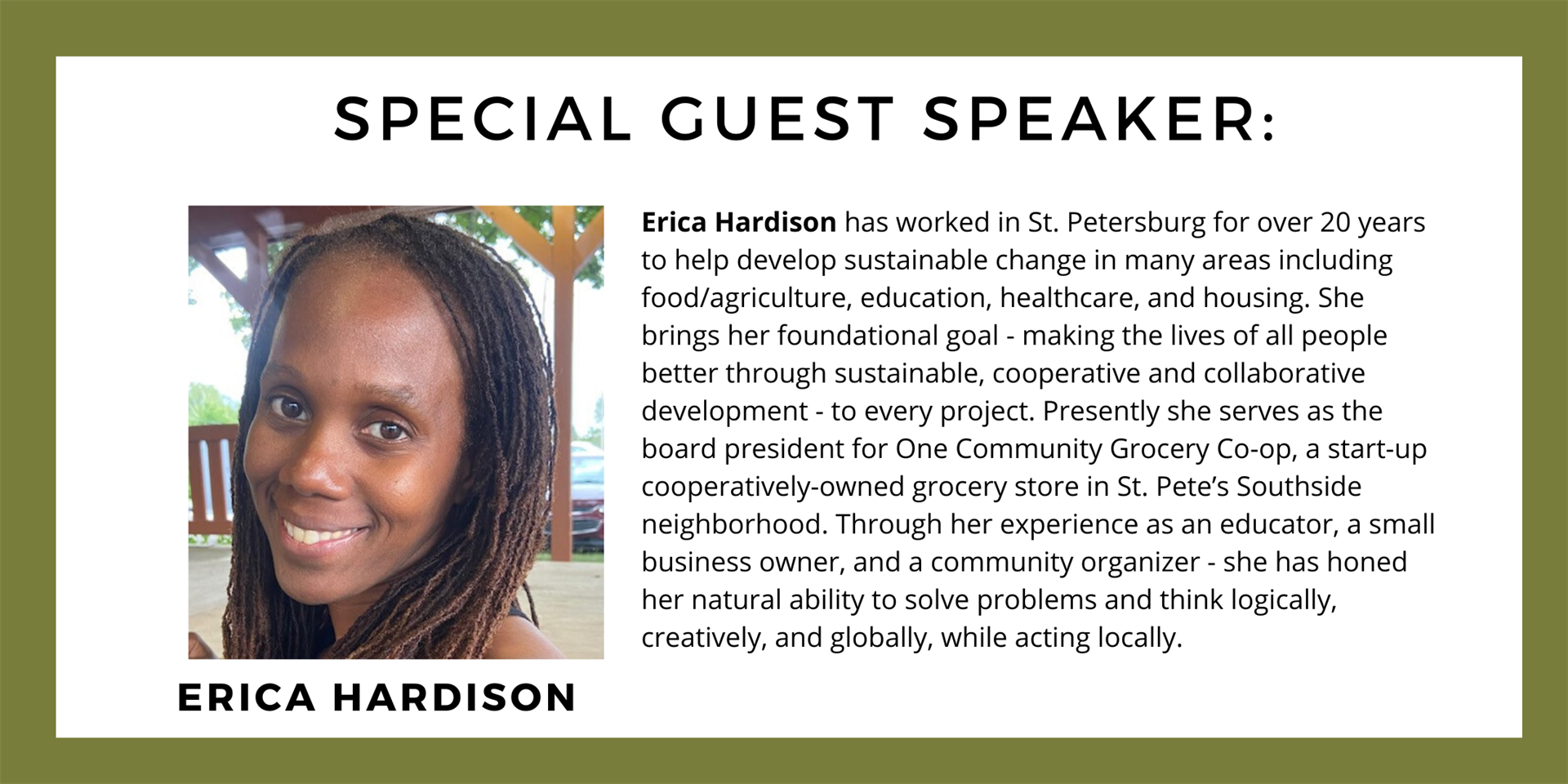
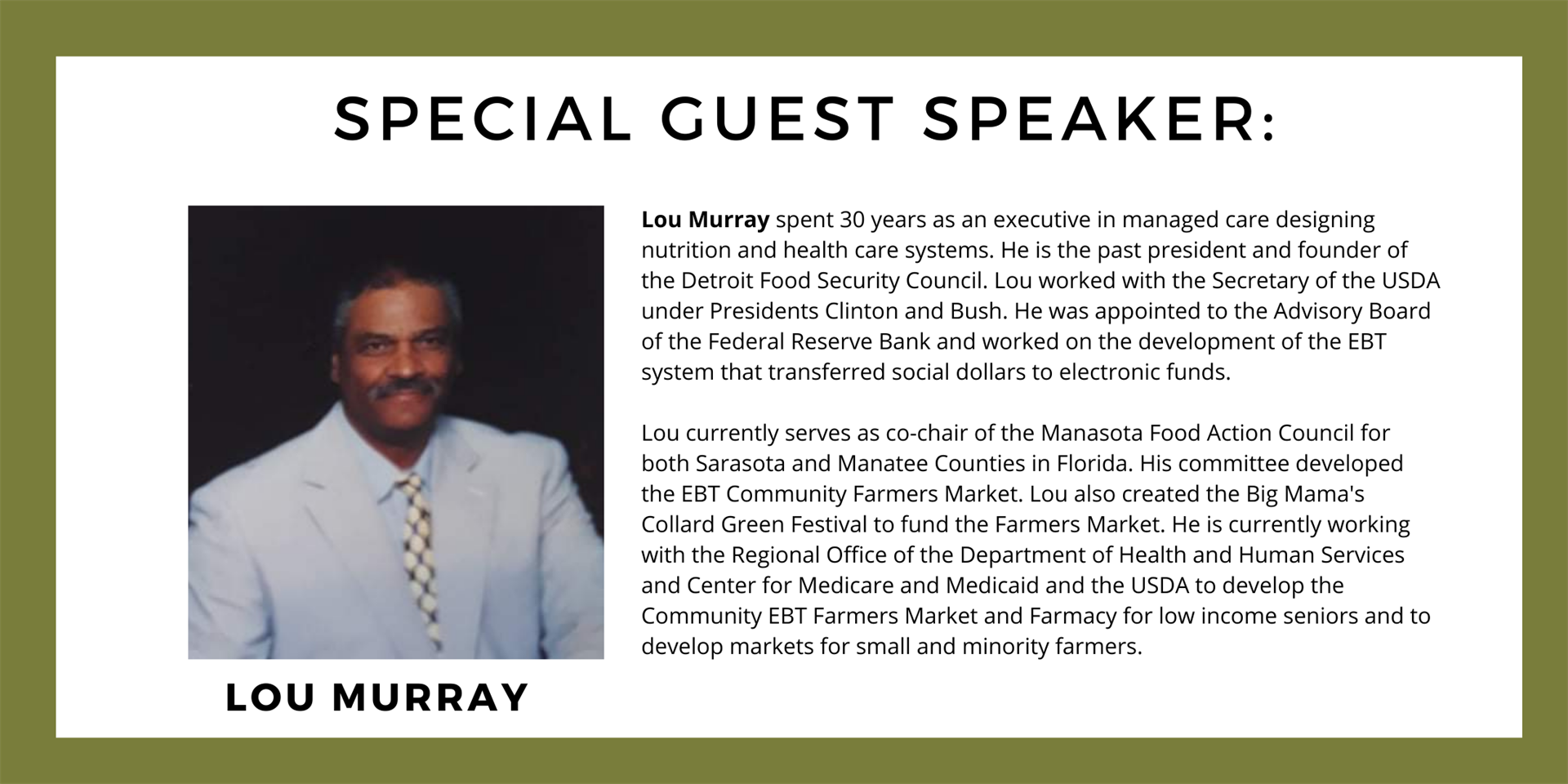
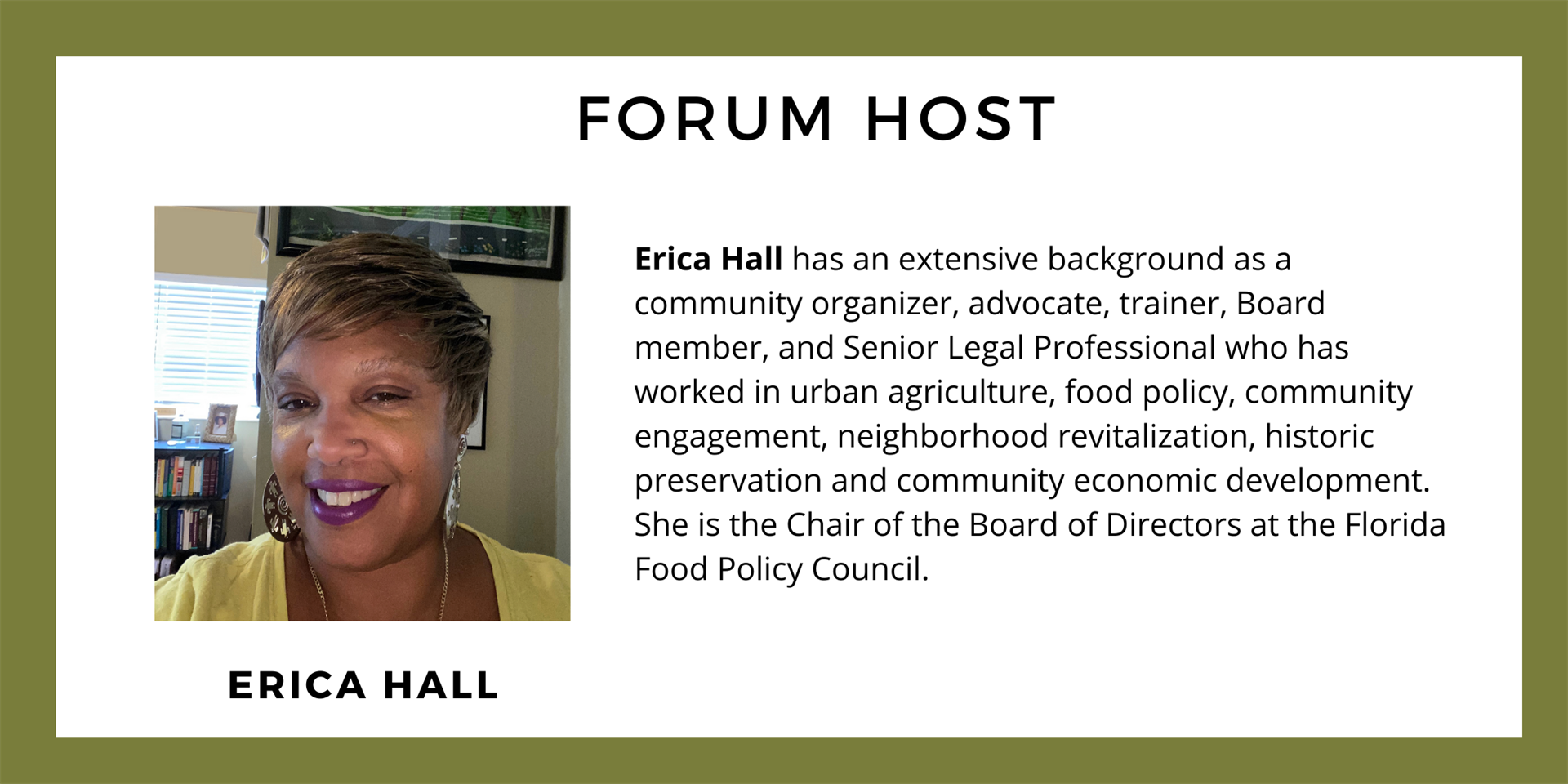
Thank you to our sponsors for making this forum possible:
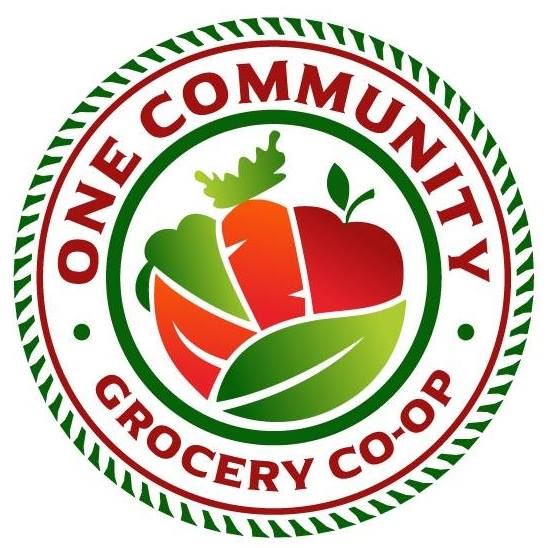
One Community Grocery Co-Op’s vision is to build a self-determined community-owned cooperative grocery store that provides fresh, healthy, and nutritionally dense food, and supports the physical, mental, and economic health of our community.
Contact: Erica Hardison, Board President
Facebook: www.facebook.com/OneCommunityGroceryCoop
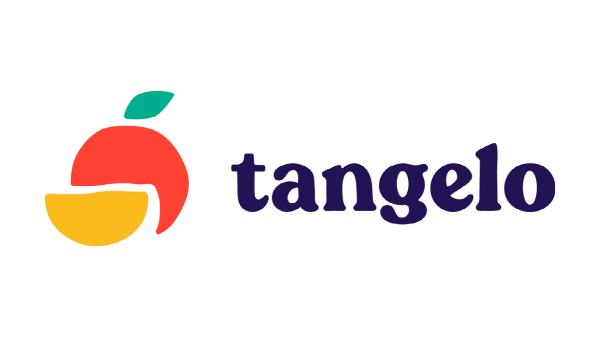 Tangelo is a Food Benefit Platform where organizations, agencies and institutions can utilize local farms and producers efficiently.
Tangelo is a Food Benefit Platform where organizations, agencies and institutions can utilize local farms and producers efficiently.
Contact: Chris Woods, chris.woods@jointangelo.com
Website: www.jointangelo.com
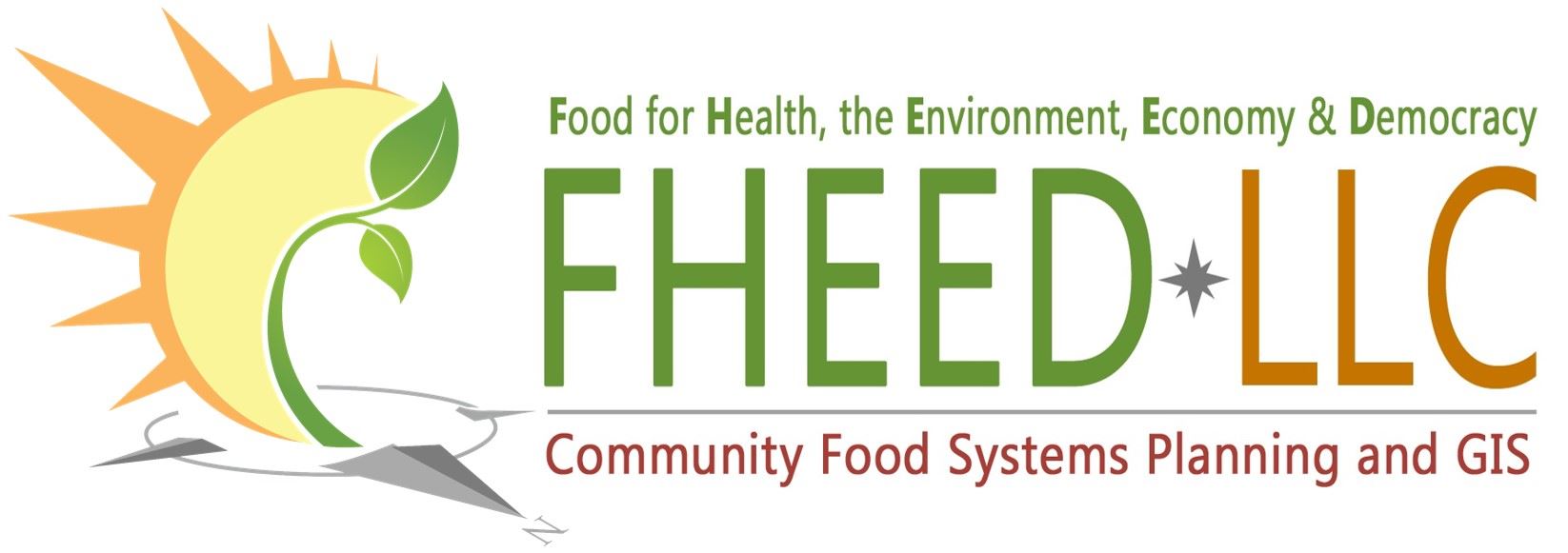 FHEED provides food systems planning, GIS analysis, advocacy, and education about food systems and healthy communities.
FHEED provides food systems planning, GIS analysis, advocacy, and education about food systems and healthy communities.
Contact: Anthony Olivieri, Founder, FHEED LLC
Website: www.FHEED.com
 J Haskins Law, located in Tampa, empowers communities with the legal and risk management tools they need to exercise food sovereignty. The contact for J Haskins Law is Jesse Haskins.
J Haskins Law, located in Tampa, empowers communities with the legal and risk management tools they need to exercise food sovereignty. The contact for J Haskins Law is Jesse Haskins.
Contact: Jesse Haskins, Founder, J Haskins Law
Website: www.jhaskinslaw.com
The Florida Food Forum is a free event. To support our work, please consider becoming a member or making a donation. For questions or more information, contact us at: info@flfpc.org
Disclaimer: The views of the presenters do not represent the views of the Florida Food Policy Council. We are a forum for the offering and sharing of information and encourage diversity and communication within the food system.